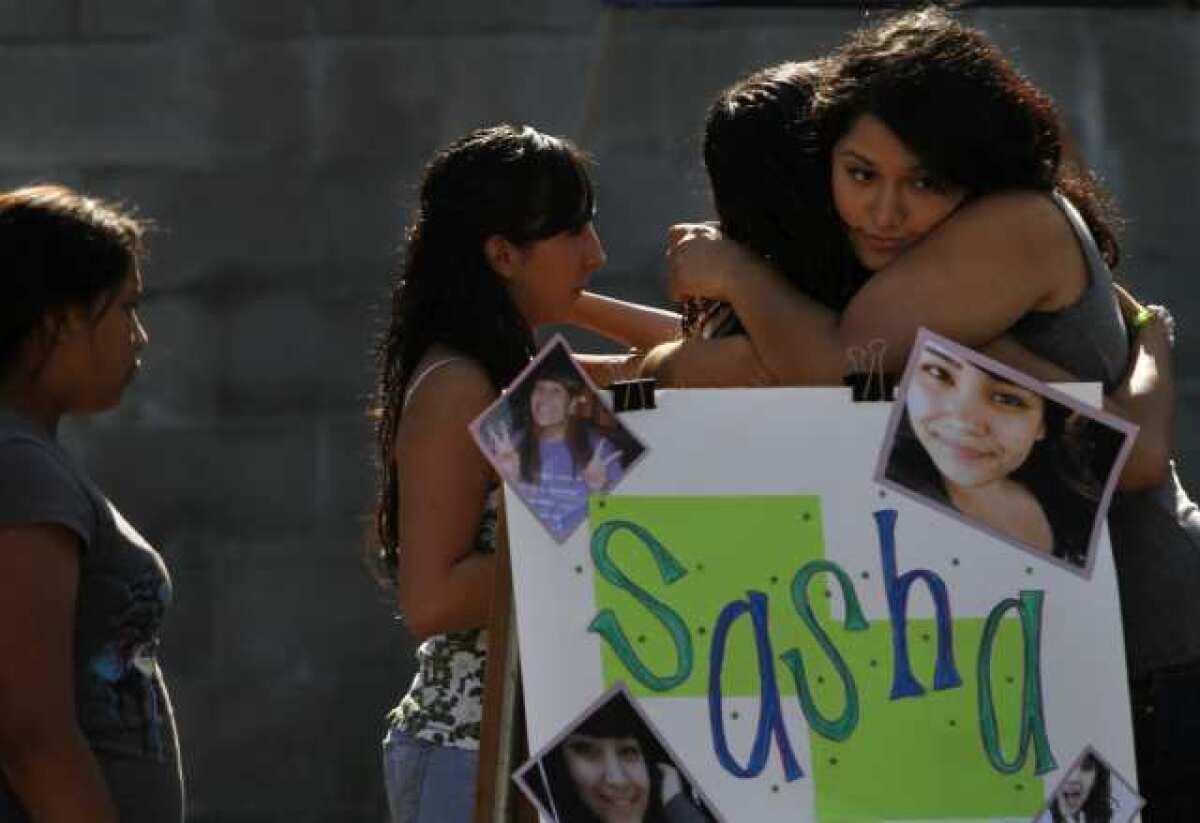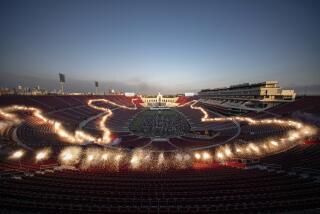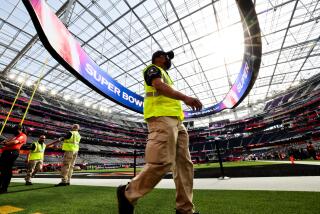Family files claim over teen’s death after a rave

The parents of 15-year-old Sasha Rodriguez, who died of an ecstasy overdose after attending a rave, have filed a claim against the management of the Los Angeles Memorial Coliseum.
The parents are seeking $5 million in damages from the Coliseum Commission.
The claim, filed Dec. 23 with both the city and county of Los Angeles, is a necessary step before suing in court. The claim says the commission, a joint state, city and county board, did not fulfill its “duties and was negligent in creating and/or allowing others to create a dangerous condition of public property” during the two-day Electric Daisy Carnival rave at the Coliseum in June.
Sasha Rodriguez, a high school student and drill team member from Atwater Village, was able to get into the event despite the 16-and-over age requirement advertised by Los Angeles-based Insomniac Events, the producer of the rave. Those under 16 needed a parent or guardian to attend, according to the event’s website. Sasha attended with friends; her parents have said they did not know she was going to a rave.
She died days after falling into a coma after attending the rave.
The Coliseum “knew, or should have known, that the rave would attract, promote, encourage, facilitate and enable widespread illegal and illicit activity, including but not limited to the possession, sale and consumption of illicit drugs,” the claim says.
The Coliseum Commission also “knew, or should have known, that the rave would attract minors under the age of majority yet it failed to enforce such minimum age requirement,” the claim said.
Patrick Lynch, general manager of the Coliseum, said in an e-mail Thursday that he was out of the office and unaware of the claim, and so was unable to comment.
In November, in a controversial vote, the commission lifted its moratorium on raves -- all-night dance parties featuring electronic music. A month later, it voted to require rave promoters to come before the panel at least 60 days in advance of an event for approval.
“We’re going to limit whatever abuses take place,” Commissioner David Israel said at the December meeting.
The Electric Daisy Carnival rave, which drew 185,000 people over two days, resulted in 120 people being taken to local hospitals, mostly for drug intoxication. Coliseum managers said there were no major problems at subsequent raves Aug. 21 and Oct. 23, which attracted 6,000 and 22,000 people, respectively. A New Year’s Eve rave, Together as One, at the Sports Arena resulted in 25 arrests and 17 hospitalizations.
All three raves that took place after the June event had been scheduled before the rave moratorium enacted after the teen’s death.
The L.A. Memorial Coliseum and Sports Arena relies on raves for 28% of its revenue, according to a consultant report filed to the commission in July.
Commissioners said they were not driven by the bottom line when they voted to continue holding raves at the public facility. Some expressed worry that raves would be forced into unregulated “back alleys” if no longer allowed at the Coliseum or Sports Arena.
Israel said commissioners weighed both public safety and free-speech concerns, and said recommendations from the county Department of Public Health would be enacted to ensure safety and reduce risk at future events. Among the recommendations: strictly enforcing an 18-and-over age limit, adding security and drug searches, and hiring medical staff to work at the raves.
Another publicly owned facility took a different approach. The state-run Cow Palace in Daly City, south of San Francisco, banned raves in November, citing numerous drug and alcohol overdoses at recent events, including two deaths following a rave in May.
On Dec. 22, Assemblywoman Fiona Ma (D-San Francisco) introduced a bill to ban raves at publicly owned venues. Ma cited a study that found many teenagers attending raves use “club drugs” such as ecstasy, GHB, methamphetamine and LSD.
Rave promoters denounced the legislation as heavy-handed.
Steven Archer, a lawyer representing Sasha’s parents, Grace Rodriguez and Leonard Contreras, said the claim does not seek any injunction that would ask a judge to stop raves at the facility.
“However, one of the collateral results of a successful lawsuit may be a change in policy of the Coliseum Commission to further control or limit raves,” Archer said. “It’s not our goal to limit them but when the Coliseum Commission is called upon to pay monetary damages to this family for what happened to their daughter, maybe by hitting them in the pocketbook, the Coliseum Commission will have its eyes opened.”
More to Read
Sign up for Essential California
The most important California stories and recommendations in your inbox every morning.
You may occasionally receive promotional content from the Los Angeles Times.











